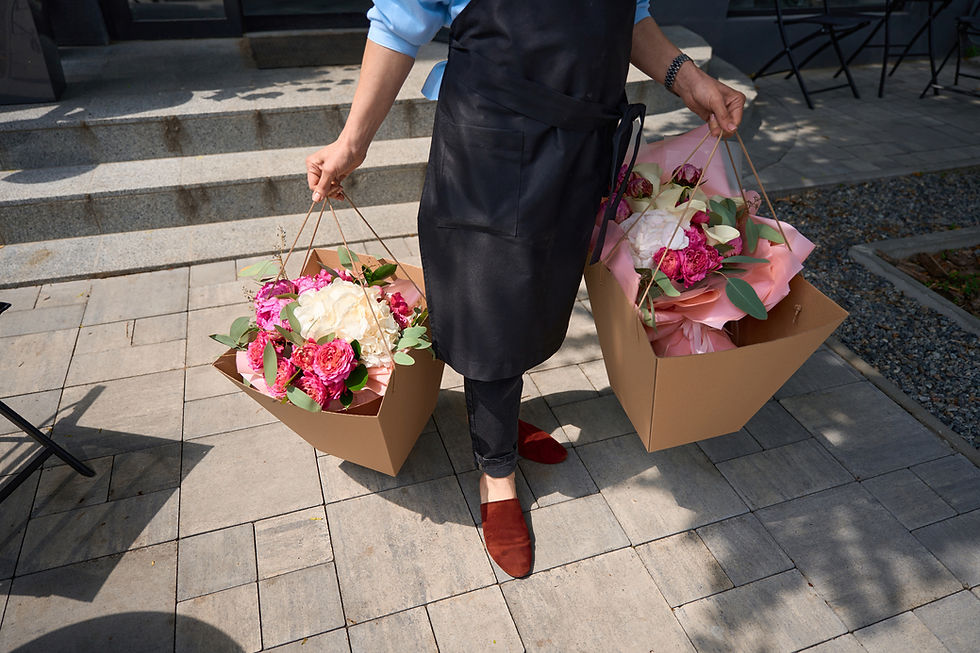Embrace Nature's Bounty: The Best Flowers for Composting
- Hannah Martin & Fiona Knowlton

- Mar 29, 2024
- 2 min read
As we immerse ourselves in the beauty of nature, we often overlook the potential of flowers beyond their aesthetic appeal. Did you know that spent flowers can be a valuable resource for enriching your compost heap? Composting flowers not only reduces waste but also contributes to the creation of nutrient-rich soil for your garden. In this blog post, we'll explore some of the best flowers for composting, unlocking the hidden potential of these botanical treasures.

Marigolds are not just vibrant additions to your garden; they also make excellent additions to your compost heap. Their bright petals add colour and vitality to your compost, while their fibrous stems help improve the structure of the compost. Marigolds are particularly beneficial for deterring pests and adding a touch of natural pest control to your garden beds.

Sunflowers, with their towering stalks and cheerful blooms, are iconic symbols of summer. When their blooms fade and their seeds are harvested, sunflower heads can be added to your compost heap. Rich in carbon, sunflower stalks provide essential structural material for your compost, helping to aerate the heap and maintain optimal decomposition conditions.

Roses are prized for their beauty and fragrance, but they also have much to offer in terms of composting. When deadheading roses, collect the spent blooms and add them to your compost bin. Rose petals break down quickly, adding nitrogen to the compost, while rose stems contribute valuable carbon. Additionally, rose hips, the fruit of the rose plant, can be composted to further enrich your soil.

Lavender, with its heavenly scent and delicate flowers, is a favourite among gardeners and herbalists alike. After harvesting lavender blooms for culinary or aromatic purposes, consider composting the spent flower heads. Lavender flowers add a pleasant fragrance to your compost heap and attract beneficial insects, such as bees and butterflies, to your garden.

Daisies, with their cheerful white petals and sunny yellow centres, are quintessential symbols of simplicity and joy. When daisies begin to wilt and fade, trim the spent flower heads and add them to your compost heap. Daisies are rich in nitrogen, which helps accelerate the decomposition process and promotes healthy microbial activity in the compost heap.

As we appreciate the beauty of flowers in our flower shops and in our gardens, let us also recognise their valuable contribution to the composting process. By composting spent flowers, we close the loop of nature's cycle, transforming floral remnants into nutrient-rich soil improver for future growth. So, the next time you admire a bouquet of flowers or tend to your garden, remember to harness the potential of these botanical gems and let them nourish your compost heap. Happy composting!
The COM:POST system is cost effective, easily integrated and suitable for floristry businesses of all sizes.










Comments